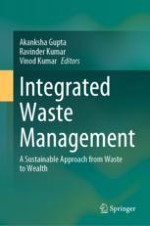2024 | OriginalPaper | Buchkapitel
Insights into Waste Management at the Institutional Level: An Approach Toward Zero-Waste Campus
verfasst von : Astha Tripathi, Sanjay Kumar, Samil Ahmed Poswal, Abhishek Dhiman
Erschienen in: Integrated Waste Management
Verlag: Springer Nature Singapore
Aktivieren Sie unsere intelligente Suche, um passende Fachinhalte oder Patente zu finden.
Wählen Sie Textabschnitte aus um mit Künstlicher Intelligenz passenden Patente zu finden. powered by
Markieren Sie Textabschnitte, um KI-gestützt weitere passende Inhalte zu finden. powered by
